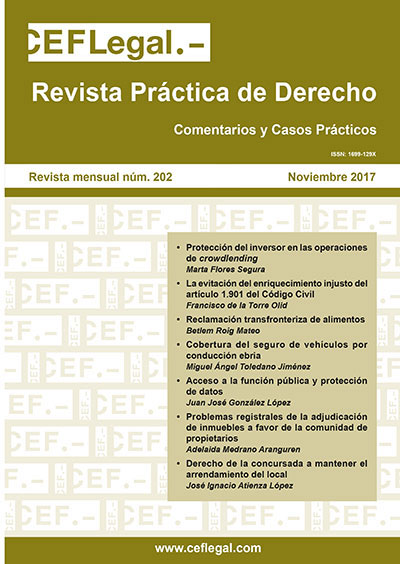La evitación del enriquecimiento injusto proscrito en el artículo 1.901 del Código Civil. Aplicación a la problemática de la obsolescencia programada
DOI:
https://doi.org/10.51302/ceflegal.2017.10587Palabras clave:
causa negocial, enriquecimiento injusto, obsolescencia programada, contratación digitalResumen
El número de contenciosos que se siguen actualmente en persecución de múltiples enriquecimientos injustos evidencia una realidad sobre la que reflexionar y profundizar desde el Derecho, para entender e impulsar soluciones que eviten y prevengan estos ilícitos, así como para articular sanciones acordes a su dimensión económica. En este sentido, es fundamental ir a la raíz del problema y arbitrar fórmulas jurídicas que vayan más allá de las meras medidas de auxilio y subsidio social, ya que estas son limitadas en el tiempo y en su cobertura. Ad exemplum, no se trata de prorrogar la suspensión de un desahucio sino de revisar la validez de una negociación financiera. La consideración panorámica que primeramente se ofrece en este estudio permite atajar un tratamiento disperso de la cuestión a la vez que sirve para unificar el fundamento y el razonamiento jurídico, de manera que estemos instruidos y prevenidos frente a focos de otros enriquecimientos injustos emergentes contra los que convenga reaccionar. Desde esta perspectiva, hay que hacer una advertencia respecto de la obsolescencia programada ya que en ella se reconoce un quebranto de relevantes instituciones jurídicas civiles, como es el negocio jurídico, que queda desnaturalizado al quedar afectados sus elementos esenciales, sobre todo la causa.















